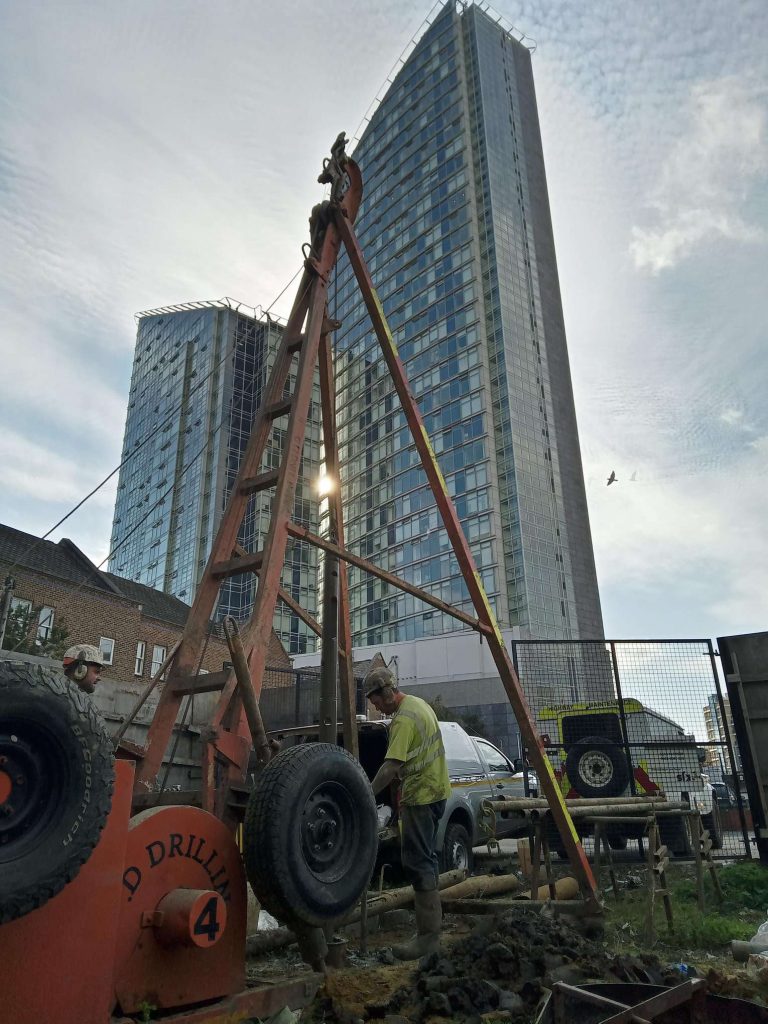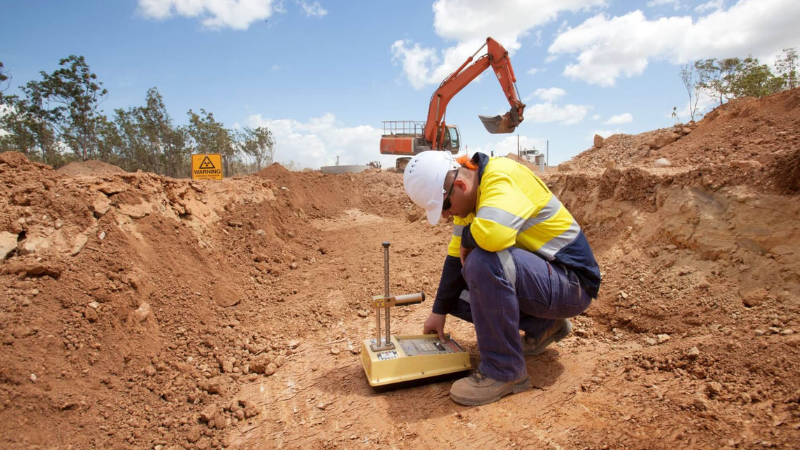Necessary Top Qualities of Effective Civil Consulting Engineers
Necessary Top Qualities of Effective Civil Consulting Engineers
Blog Article
A Thorough Introduction of the Secret Obligations of Geotechnical Engineers in Website Characterization and Ground Renovation Techniques for Design Solutions
Geotechnical designers are essential to the effective execution of design jobs, entrusted with the crucial obligations of site characterization and the application of ground enhancement methods. Their job includes a detailed evaluation of subsurface conditions, utilizing various testing approaches to recognize soil and rock properties.
Role of Geotechnical Engineers
Geotechnical engineers play a pivotal duty in the design and building of infrastructure by analyzing the actions of soil and rock underneath the surface - geotech engineer. Their duties encompass reviewing subsurface problems to educate style decisions that make sure structural stability and safety. By carrying out thorough evaluations of dirt properties, consisting of shear leaks in the structure, compressibility, and strength, geotechnical designers supply important information that influences the option of proper building and construction products and strategies
Along with analyzing soil auto mechanics, geotechnical designers are charged with determining potential dangers such as landslides, sinkholes, and ground settlements. Their know-how aids minimize risks connected with these geotechnical sensations, consequently protecting both the environment and public safety. They likewise collaborate carefully with other design techniques, guaranteeing that geotechnical factors to consider are incorporated into general task design.
Furthermore, geotechnical engineers take part in the analysis of existing structures, supplying referrals for retrofitting and repair work when necessary. Their comprehensive understanding of soil-structure interaction is important for the development of lasting facilities remedies. Generally, the role of geotechnical engineers is indispensable to the successful understanding of building and construction jobs, guaranteeing they are secure, durable, and certified with regulative criteria.

Site Characterization Procedures
Efficient site characterization processes are necessary for recognizing the subsurface problems that affect project style and execution. Geotechnical engineers use a systematic strategy to gather, assess, and translate data pertaining to groundwater, soil, and rock characteristics. This procedure starts with a comprehensive review of existing literature and archaeological site information, offering insights into previous website conditions and potential difficulties.

Information analysis complies with fieldwork, where designers utilize geostatistical techniques to translate searchings for and develop geological models. This modeling aids in recognizing potential geohazards, such as landslides or liquefaction, which are critical for risk evaluation. Consequently, the results educate design referrals, ensuring that engineering services are both risk-free and reliable. Through persistent website characterization, geotechnical designers prepared for effective job execution, lessening unexpected complications and maximizing source appropriation.
Soil and Rock Screening Techniques
While understanding subsurface problems is crucial, the selection of appropriate soil and rock testing methods is just as necessary for accurate evaluation and design. Geotechnical designers employ a range of testing techniques to review the mechanical and physical residential properties of dirt and rock products.
Laboratory examinations, such as Atterberg limits, grain size analysis, and unconfined compressive stamina tests, supply crucial data on dirt actions under different wetness conditions and packing scenarios. These examinations assist have a peek at this site identify soil classification and predict settlement or shear toughness features crucial for structure style.
In-situ screening techniques, consisting of Standard Penetration Examinations (SPT), Cone Penetration Tests (CPT), and stress meter examinations, enable designers to collect data straight from the ground. These approaches offer beneficial insights into the soil's density, consistency, and stratification without the requirement for considerable sampling.
Rock testing typically entails core tasting and lab evaluation to evaluate buildings like uniaxial compressive strength and rock quality designation (RQD) Together, these dirt and rock screening approaches make it possible for geotechnical designers to make enlightened choices regarding site-specific challenges, ensuring the safety and stability of engineering options.
Ground Enhancement Methods
Ground improvement strategies are necessary for enhancing the design residential or commercial properties of soil, thereby raising its load-bearing capability and minimizing settlement. These methods are essential in dealing with challenges presented by bothersome or weak dirts, which can substantially affect the security and sturdiness of structures.
Various ground enhancement techniques are used, including compaction, grouting, and dirt stabilization. Grouting, on the various other hand, includes injecting a fluid material right into the ground to load spaces and enhance dirt cohesion.
Dirt stablizing incorporates a series of techniques, from chemical ingredients to mechanical therapies, focused on boosting the soil's resistance to disintegration and deformation. Strategies such as lime stablizing or cement mixing modify the buildings of the soil at a bit level, boosting its overall efficiency.
Value of Geotechnical Evaluations
Geotechnical analyses play a vital duty in the preparation and layout of design jobs, as they offer crucial details about the subsurface problems. Recognizing soil properties, rock developments, groundwater degrees, and possible geohazards is essential for ensuring the security and security of frameworks. These evaluations make it possible for designers to make informed choices concerning website option, layout parameters, and building approaches.
The value of geotechnical assessments prolongs past preliminary project phases; they are instrumental in threat management and price efficiency. By determining potential issues early, such as dirt settlement, slope instability, or excessive groundwater, engineers can develop appropriate mitigation methods, decreasing the chance of expensive hold-ups and architectural failures. These assessments support conformity with regulatory demands and boost the sustainability of engineering methods.

Conclusion
To conclude, geotechnical engineers are crucial to ensuring the safety and stability of engineering projects with detailed website this post characterization and ground enhancement strategies. civil consulting engineers. Their organized strategy to assessing subsurface conditions, integrated with their suggestions for efficient ground adjustment, substantially boosts dirt residential properties and load-bearing capacity. The experience of geotechnical designers not just promotes enlightened project planning but likewise guarantees conformity with laws and cultivates reliable interaction among stakeholders, ultimately adding to successful engineering outcomes
Geotechnical designers play a crucial role in the layout and building of facilities by analyzing the actions of dirt and rock under the surface. By carrying out comprehensive evaluations of soil homes, consisting of shear compressibility, leaks in the structure, and strength, geotechnical designers offer vital data that affects the selection of ideal building products and methods.
In enhancement to evaluating dirt auto mechanics, geotechnical engineers are charged with identifying prospective dangers such as landslides, sinkholes, and ground settlements. Geotechnical engineers utilize an organized method to collect, review, and interpret data pertaining to soil, groundwater, and rock attributes. By recognizing prospective concerns early, such as soil settlement, incline instability, or too much groundwater, engineers can create appropriate mitigation techniques, reducing the possibility of architectural failures and costly delays.
Report this page